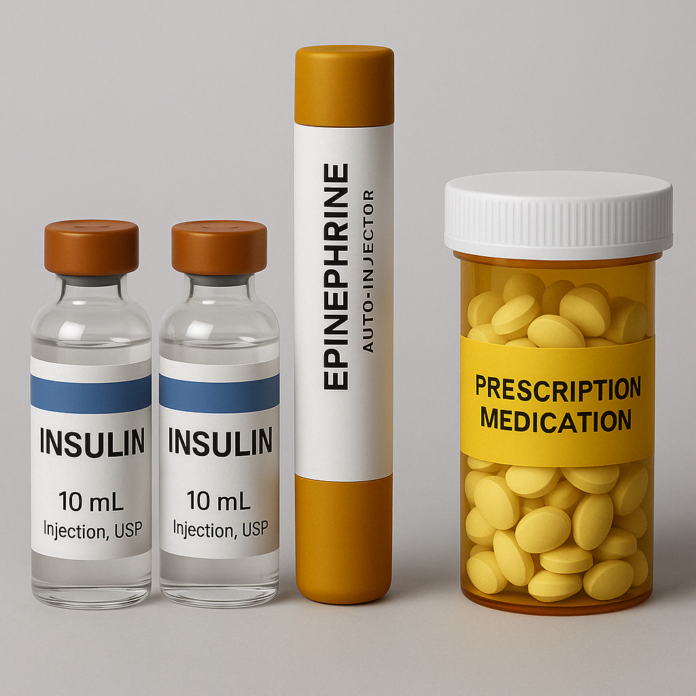
President Donald Trump signed an executive order on Tuesday aimed at reducing the cost of prescription drugs for American patients, with a focus on expanding Medicare price negotiations, reviving insulin assistance programs, and encouraging the importation of more affordable medications from abroad.
The action builds upon provisions included in the Inflation Reduction Act passed during the Biden administration, which granted Medicare the authority to negotiate prices for select high-cost drugs. While Biden’s team negotiated prices for 10 drugs that will take effect in 2026, Trump’s order sets the stage for a second round of negotiations involving 15 additional drugs. These include widely used treatments such as Ozempic and Wegovy for diabetes and weight loss, as well as cancer drugs like Ibrance and Xtandi.
The new order directs Health and Human Services Secretary Robert F. Kennedy Jr. to work with Congress to revise the existing negotiation framework. One of the key changes sought is to align the timeline for when Medicare can begin negotiating prices for small-molecule drugs (typically pills) with that of biologics (usually injectables). Under current law, pills are eligible for negotiation nine years after approval, while biologics have a 13-year window. Trump’s administration argues that this timeline difference discourages investment in oral medicines and favors complex injectable drugs.
While the executive order cannot change the law on its own, it calls for collaboration with lawmakers to make the eligibility timeline more consistent without raising overall Medicare costs. Officials said these changes would help bring savings to a wider range of patients, particularly those relying on lower-cost pill-based treatments.
Another aspect of the order revives a previous Trump-era initiative that aims to provide low-income patients with access to insulin and epinephrine at very low prices. Under the plan, eligible individuals could obtain insulin for as little as three cents per vial, with a small administrative fee, and auto-injectors of epinephrine for around $15.
The administration also instructed the Food and Drug Administration (FDA) to streamline the approval process for generic and biosimilar drugs and to make it easier for states to apply for drug importation programs. As of now, only Florida has received FDA approval to import drugs from Canada, although several other states have applied.
Additionally, the order addresses price discrepancies based on where patients receive care. It calls for Medicare to align drug payments with hospital acquisition costs and proposes standardizing what patients pay across different care settings. This would address concerns that individuals pay more or less for the same medication depending on whether they receive it in a hospital, outpatient clinic, or physician’s office.
Some industry analysts and policy experts warn that separate measures, including possible tariffs on pharmaceutical imports, could lead to higher costs for some drugs. A national security review launched this week could result in new tariffs on imported medications or ingredients, raising concerns about future prices for drugs manufactured abroad.
Trump’s administration claims the full impact of these changes may surpass previous efforts, though the benefits to consumers are not expected until 2027 or later.
This image is the property of The New Dispatch LLC and is not licenseable for external use without explicit written permission.





